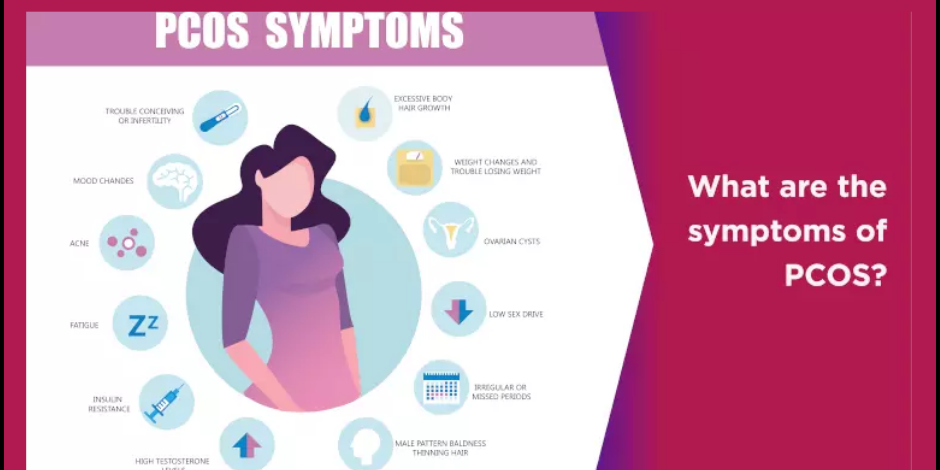Polycystic Ovarian Syndrome or PCOS, is one of the most common causes of female infertility. This typically affects women between the ages of 15 and 44. In many cases, women do not realize that they have PCOS until they are diagnosed with infertility. However, being able to recognize signs of PCOS can help you seek treatment in the early stages so that it is easier for you to conceive. Some of the major symptoms of polycystic ovarian syndrome are:
Irregular Periods
PCOS disrupts the ovulation cycle. If the egg is not released, the uterine lining does not need to be shed. As a result, a woman with PCOS has irregular periods or may miss her periods. Some women with PCOS have less than 8 periods in a year.
Heavy Bleeding
Since the ovaries release eggs irregularly, the uterine lining grows thicker than normal. This is noted, especially after missed periods. As a result, when a period does occur, the blood flow is heavier than normal. These periods may be associated with painful cramps.
Body Hair Growth
Every woman has hair on her body but a woman with PCOS may have thicker hair and faster hair growth. This may be seen not only in the arms and legs but also on the chest, stomach and back. In many cases, women with PCOS may even develop facial hair. This type of excessive hair growth is known as hirsutism.
Acne
PCOS can cause chronic acne. This type of acne affects not only the T zone but also the lower half of the face. It may also affect the chest and back. PCOS-related acne can take the form of pimples, whiteheads and cysts. Some of these cysts do not have a visible head as they develop deep below the skin.
Weight Gain
PCOS affects the reproductive hormones and the thyroid hormones responsible for metabolism. The reduced thyroid hormone levels slow down metabolism. Hence, many women with PCOS tend to put on weight without any particular reason and become overweight or obese.
Male-pattern Baldness
Though PCOS causes hair growth on the body, hair on the scalp may begin to thin out. This can be noted in the form of excessive hair fall, hair thinning, and a receding hairline.
Darkening of the Skin
PCOS also affects the luster of a woman’s skin. It can make the skin appear dark in patches. This is seen particularly in the groin, under the breasts, the neck and other areas where the skin forms creases. These patches may also feel velvety to touch. Darkening of skin due to PCOS is also referred to as acanthosis nigricans.
Headaches
Some women with PCOS may experience frequent headaches. This may be because of estrogen dominance or nutritional deficiencies.
These symptoms usually start surfacing after a woman has her first period during puberty. All women with PCOS do not exhibit the same symptoms or the same intensity of symptoms. In many cases, the symptoms may go completely unnoticed.







